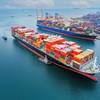Caribbean States Want IMO to Agree Universal Fuel Levy
The IMO’s Marine Environment Protection Committee (MEPC82) opened on Monday, and the Caribbean islands – Jamaican, Antigua and Barbuda, Belize, Barbados, Dominica, the Grenadines, Grenada, Trinidad & Tobago, St Kitts, St Lucia and St Vincent – are calling for participants to agree on a fuel levy as part of IMO’s mid-term measures for reducing GHG emissions.
The states want a universal GHG levy on shipping emissions which ensures that all carbon emitters contribute proportionately. The States want to see funds/revenue from the levy distributed in a manner that will assist SIDs and Least Developed Countries (LDCs) with climate adaptation and mitigation projects.
In the Caribbean, this could mean:
• enabling the updating of port infrastructure in the region,
• assisting Caribbean shipowners to retrofit vessels to become cleaner,
• supporting research and development of new fuels,
• and funding seafarer training, among other initiatives.
Bertrand Smith, Director General of the Maritime Authority of Jamaica said: “In the Caribbean we already pay some 7.5% higher freight rates. Revenue from a mandatory levy should be used to help with resilience in relation to climate change.”
He also pointed out: “Here in the Caribbean we are already feeling the impacts of climate change with extreme weather occurrences, such as the recent Hurricane Beryl, becoming more frequent. We know first-hand what we are up against and we are committed to working together to protect our oceans and world for future generations.”
Member States attending MEPC 82 will debate a range of proposals aimed at tackling climate change, but IMO Secretary-General Arsenio Dominguez, on delivered opening remarks on September 30, particularly cited the importance of the development of draft amendments to MARPOL Annex VI on the basket of mid-term GHG reduction measures, building upon the outcome of ISWG-GHG 17 held last week.
After ISWG-GHG 17, the International Chamber of Shipping was pleased that the concept of a universal GHG contribution by ships per tonne of CO2e emitted remains firmly on the table, with strong support from a clear majority of IMO Member States. “There is broad agreement, as advocated by the shipping industry, about the need to reduce the cost gap with conventional marine fuel oil to incentivise a rapidly accelerated uptake of zero/near-zero GHG fuels, so that achievement of net zero emissions by or close to 2050 remains plausible and possible.”
China and Brazil have raised concerns about the concept, so negotiations will continue this week.











